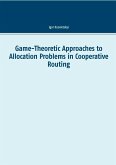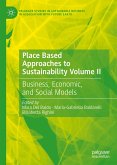Seminar paper from the year 2023 in the subject Business economics - Miscellaneous, grade: 1, Kozminski University, language: English, abstract: The widely understood institutionalism is an interdisciplinary research area, of which institutions are the central issue. Approaches used in this area are divided into "old" and "new", also the division into classic and contemporary approaches is used. In practice, there are at least several research trends in various disciplines of social sciences, which is referred to as "new institutionalism." They differ in paradigmatic basis, main research problems or applied methods. The common ground is the belief in the key role of institutions in shaping social, economic and political life. In total, these trends constitute a renaissance of interest in this subject. The new institutionalism, as a fully-fledged (institutionalized) perspective, created a new paradigm (especially in the field of economics), which was formed for good in the 1980s. Institutional theory defines "institutions" as social phenomena which, due to the interaction of civic or public involvement, entrepreneurship, social norms and traditions, become common foundations of social life. These systems arise from subjective human interaction but at the same time, they are perceived by the participants as objective and stable. In addition, institutions are the basic elements of social contexts in which formal organizations are embedded. Institutionalism means a general approach to the study of political institutions, a set of theoretical ideas and hypotheses regarding the relationship between institutional traits and the political agenda, achievements and changes. Institutionalism emphasizes the endogenous character and social construction of political institutions.
Dieser Download kann aus rechtlichen Gründen nur mit Rechnungsadresse in A, B, BG, CY, CZ, D, DK, EW, E, FIN, F, GR, HR, H, IRL, I, LT, L, LR, M, NL, PL, P, R, S, SLO, SK ausgeliefert werden.









